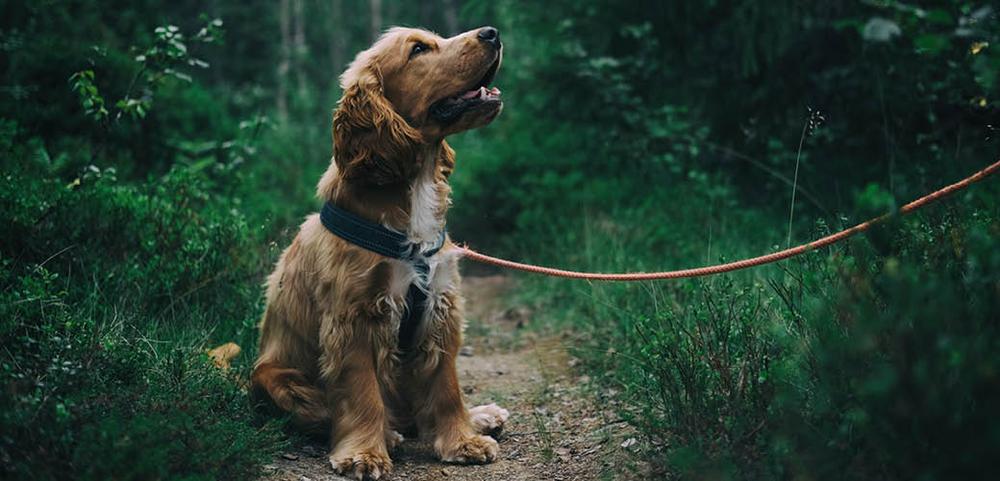Ensuring the safety and well-being of your dog goes beyond feeding and exercising them—it's also about responsible pet ownership, which includes registering and microchipping your dog. In New Zealand, it’s legally required for every dog owner to register their pet with the local council and have them microchipped. While you might think this requirement is simply for council records, the main benefit of registration and microchipping is to help reunite lost or stolen dogs with their rightful owners.
In addition to fulfilling a legal obligation, registering and microchipping your dog provides several other important advantages, all of which contribute to the safety and welfare of your pet. Let’s take a closer look at why it’s crucial to register and microchip your dog, and what the process involves.
Why Register Your Dog?
Dog registration is an important step in making sure that your dog is easily identifiable. By registering your dog with the local council, you provide a straightforward way for authorities to confirm that your dog belongs to you. This process becomes even more effective when you ensure your dog wears a collar with the registration tag attached at all times.
But why should you bother registering? Aside from helping with identification, the registration fees you pay contribute to the funding of local dog control services and amenities such as dog parks, public spaces for pets, and even waste disposal services like dog waste bags. These fees might differ slightly depending on the council, but they are essential for maintaining a pet-friendly environment in your community.
How Do I Register My Dog?
The registration process is simple and can usually be completed online. Most councils have online forms where you fill in your dog's details, pay the registration fee, and receive a tag by mail. If this is your first time registering a dog, there may be additional questions to answer. You might need to provide proof of your dog’s microchipping and sterilization, especially if you’re registering a new puppy.
In some cases, the council may ask for additional documentation if your dog is a working breed, or if it falls under a special classification. If you prefer, you can also register your dog in person at your local council office.
Additionally, some councils offer the option to apply for a Responsible Dog Owner Licence (RDOL). This is an educational program that helps dog owners understand their responsibilities. If you are granted an RDOL, you could receive discounts on your registration fees, making it a win-win situation for both you and your pet. Check with your local council to find out more about this opportunity.
Why Microchip Your Dog?
Although registration tags are helpful, they’re not foolproof. Collars can be lost, damaged, or even removed by someone who finds your dog. In contrast, microchipping provides a permanent, reliable form of identification. Microchips are small, and once they are inserted under your dog’s skin, they remain there for life.
The microchip, along with your up-to-date contact information, allows animal shelters, vets, and even the local council to contact you if your dog is found. This technology is especially useful if your dog goes missing, gets stolen, or ends up in a shelter far from home. Furthermore, a microchip can be vital if there’s ever a dispute over the ownership of the dog, as it provides an undeniable proof of ownership.
How Do I Get My Dog Microchipped?
Getting your dog microchipped is a quick and simple process. Your local vet or animal welfare center, like the SPCA, is the ideal place to have this done. The procedure is minimally invasive, and it’s often done at the same time as other routine veterinary services, like vaccinations. Once the microchip is inserted, the vet will also register it in the NZ Companion Animal Register, linking it to your contact information. This ensures that your dog’s details are accessible across the country, no matter where they may be.
It's essential to remember that if you move or change your contact details, you must update the NZ Companion Animal Register. This can easily be done online or with the help of your vet. Additionally, you should ask your vet to scan your dog’s microchip during regular check-ups to make sure it's still functioning properly and that your contact details are correct.
If you adopt a dog that already has a microchip, it’s important to update the ownership details in the register to reflect that you are now the legal owner. This ensures there are no complications should your dog get lost or separated from you.
Additional Identification Options
While microchipping is highly reliable, it’s still a good idea to take extra steps to ensure that your dog can be identified if they get lost. A personalized name tag attached to your dog’s collar with your contact details is an excellent option. If someone finds your dog, they can quickly reach out to you directly, which could be faster and easier than relying on animal shelters or authorities to track you down.
A name tag offers immediate contact, reducing the time your dog might spend in a shelter or animal control facility. It also provides peace of mind, knowing that anyone who encounters your dog can quickly return them to you.
Conclusion
Dog registration and microchipping are fundamental practices that help ensure your dog’s safety and increase the likelihood of being reunited with them if they get lost or stolen. In New Zealand, these requirements are part of responsible pet ownership, and the small fees and effort involved go a long way in supporting the welfare of all dogs in the community. Beyond the legal obligations, these measures also make your pet safer, help fund local pet facilities, and provide peace of mind for both you and your furry friend.
If you haven’t registered or microchipped your dog yet, now is the time to take action. Not only will you comply with the law, but you’ll also be taking important steps to protect your dog and ensure they’re never far from your care and love.



